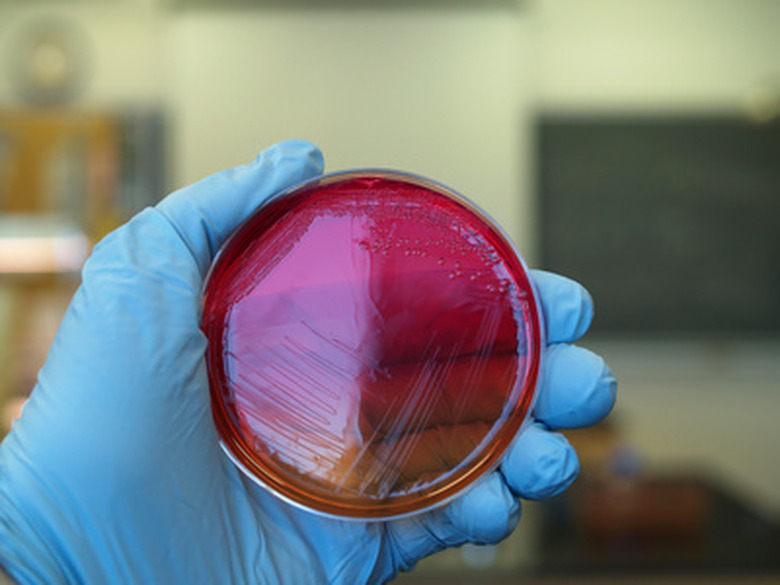Types Of Bacteria In Blood
There are many different types of bacteria, some of which can cause illness and infection. Bacteria can dwell in different areas of the body, including the skin, intestines and blood. When certain bacteria enter the bloodstream, they can cause serious illnesses and even death. It is helpful to know which bacteria can get into the blood.
E. Coli
E. Coli
Some strains of Escherichia coli, also known as E. coli, bacteria are responsible for food poisoning when they enter the intestinal tract. When these strains enter the bloodstream, they can destroy red blood cells and cause anemia, coma and even death.
Streptococcus
Streptococcus
Various types of streptococcal, or strep, bacteria cause sore throats and skin infections, among other problems. When one type of strep bacteria, Group A, enter the bloodstream, the results can be life-threatening. These bacteria can cause shock, coma, and a specific type of skin necrosis.
Staphylococcus
Staphylococcus
Staphylococcal bacteria, also called staph, multiply rapidly and can lead to severe infections. When staph bacteria enter the bloodstream, they can cause inflammation, swelling, pus formation and elevated blood pressure. Coma and death can occur if the infected person is left untreated.
Cite This Article
MLA
Sundstrom, Kelly. "Types Of Bacteria In Blood" sciencing.com, https://www.sciencing.com/types-bacteria-blood-6924110/. 24 April 2017.
APA
Sundstrom, Kelly. (2017, April 24). Types Of Bacteria In Blood. sciencing.com. Retrieved from https://www.sciencing.com/types-bacteria-blood-6924110/
Chicago
Sundstrom, Kelly. Types Of Bacteria In Blood last modified March 24, 2022. https://www.sciencing.com/types-bacteria-blood-6924110/
